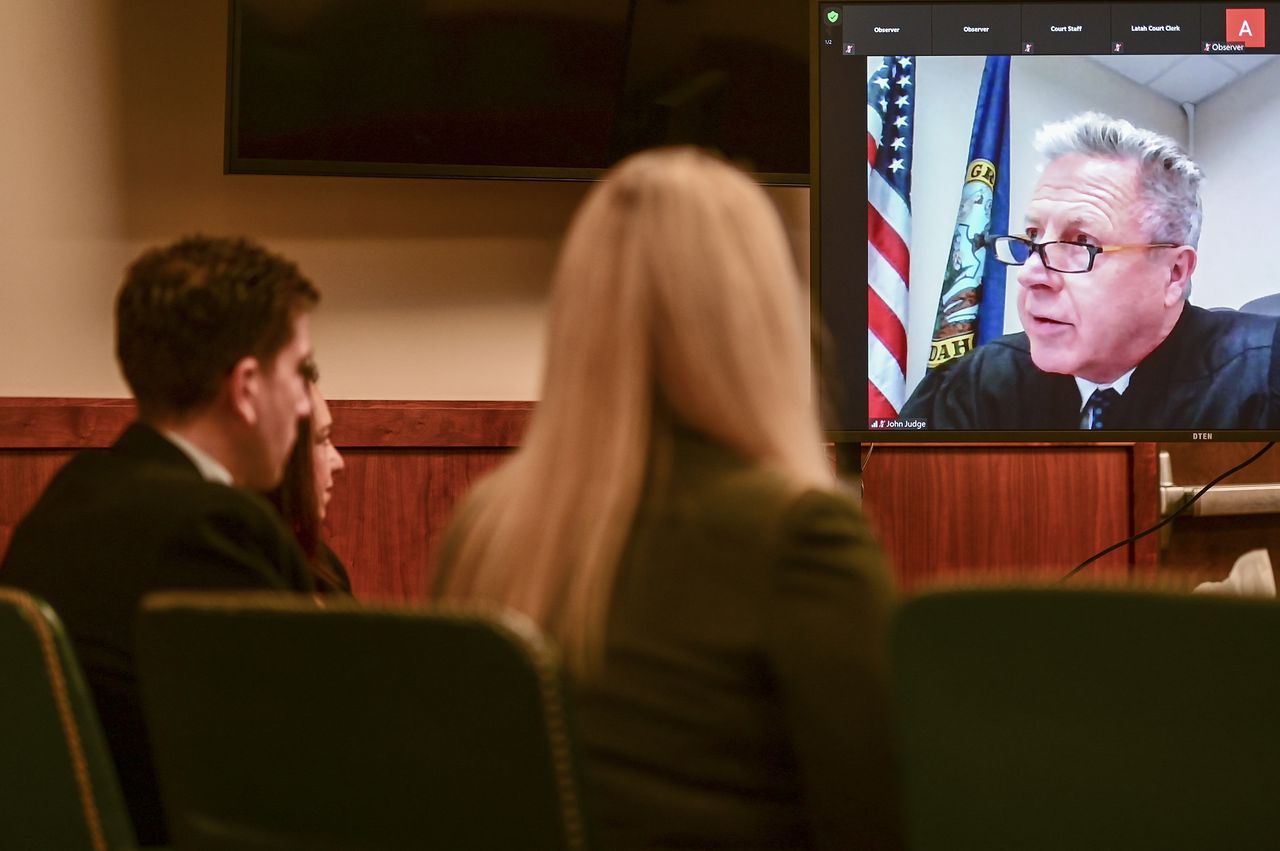Idaho quadruple homicide: Judge hears challenge to gag order in Bryan Kohberger case
By GENE JOHNSON, Associated Press
A judge overseeing the case against Bryan Kohberger, charged with killing four University of Idaho students last fall, heard arguments Friday over a gag order that largely bars attorneys and other parties in the case from speaking with news reporters.
A coalition of more than 30 media organizations has challenged the order, saying it violates the Constitution’s guarantees of free speech and a free press, as has a lawyer for one of the victim’s families. But prosecutors and the defendant’s lawyers insist it’s needed to prevent prejudicial news coverage that could damage Kohberger’s right to a fair trial.
“It remains appropriate to have an Order reminding lawyers and their agents of the rules of engagement in this country and that we try cases in court, not in the press,” one of Kohberger’s attorneys, Jay Weston Logsdon, wrote in a memo to the court this week.
Second District Judge John C. Judge indicated he would rule later on the gag order and on a separate issue of whether to allow cameras in the courtroom during further proceedings.
Kohberger, 28, is charged with four counts of first-degree murder and burglary in connection with the stabbing deaths in Moscow, Idaho, on Nov. 13, 2022. Judge entered not guilty pleas on his behalf last month. Prosecutors have not said if they will seek the death penalty.
The bodies of Madison Mogen, Kaylee Goncalves, Xana Kernodle and Ethan Chapin were found at a rental home across the street from the University of Idaho campus. The slayings shocked the rural Idaho community and neighboring Pullman, Washington, where Kohberger was a graduate student studying criminology at Washington State University.
The case has garnered widespread publicity, and in January Latah County Magistrate Judge Megan Marshall issued a “nondissemination” order barring attorneys, law enforcement agencies and others associated with the case from talking with the press or issuing statements unless they are quoting directly from a court document.
The Idaho Supreme Court in April declined to vacate the gag order, saying the news organizations, including The Associated Press, should have first asked the lower court to lift the order. The justices did not weigh in on whether the gag order violates First Amendment rights.
The news organizations subsequently did ask the lower court to revoke the order, and Judge scheduled arguments for Friday. The media coalition says that while it respects the defendant’s right to a fair trial under the Sixth Amendment, the court should not have issued a gag order without evidence that right would be infringed by their ability to speak with attorneys involved in the case.
“Intervenors agree that there has been, and will continue to be, great publicity surrounding this case,” the coalition’s attorneys wrote. “But publicity alone is not prejudicial. … The State’s and Mr. Kohberger’s failure to present any evidence of prejudicial news coverage, and the Court’s failure to consider alternative measures, means the competing constitutional rights here were improperly balanced and the Gag Order should be vacated.”
Gag orders that prohibit journalists from writing about certain cases are considered to be severely problematic under the First Amendment. But the U.S. Supreme Court and other appeals courts have upheld some that prohibit attorneys, police or others involved in a case — those with privileged information about it — from speaking with reporters to begin with, as a way to avoid influencing potential jurors or otherwise jeopardizing a defendant’s right to a fair trial.
Shanon Gray, an attorney for the Goncalves family, has also asked the judge to lift the gag order, saying he should be allowed to speak on the family’s behalf.
During Friday’s arguments, Wendy Olson, an attorney for the media group, argued that even if the gag order is vacated, ethical rules for lawyers will remain in place that prohibit them from making public statements that have “a substantial likelihood of materially prejudicing” the case.
Olson suggested that allowing prosecutors and defense attorneys to speak with reporters — if they want to — to explain legal proceedings or terms, for example, would improve coverage of the case to the benefit of the public.
Logsdon disagreed, denigrating the press at length and insisting reporters are merely interested in attracting clicks online.
“The reality is that if they spoke to us, they will pick and choose from our statements, they will twist what we said into things we never meant, and they will continue to put on the same narrative that gets them clicks,” he said.
